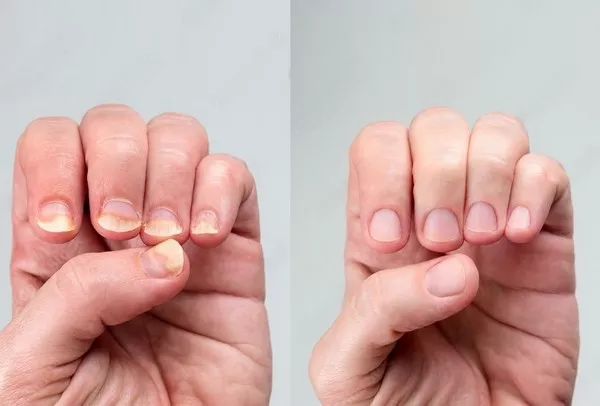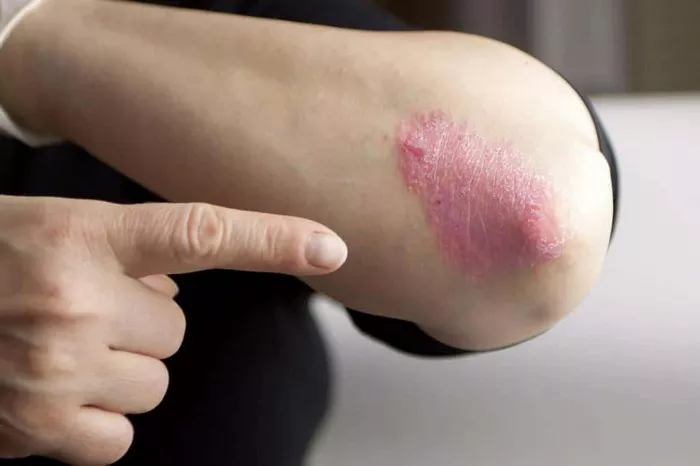Eczema, also known as atopic dermatitis, is a chronic skin condition characterized by dry, itchy, and inflamed skin. Proper bathing and skincare routines are crucial for managing eczema symptoms and maintaining healthy skin. However, determining how often to bathe can be challenging, as too much or too little bathing can exacerbate the condition. This comprehensive article explores the best practices for bathing with eczema, including frequency, techniques, and post-bath skincare to ensure optimal skin health.
Understanding Eczema
What is Eczema?
Eczema is a chronic inflammatory skin condition that causes the skin to become dry, itchy, and prone to rashes. It commonly appears on the face, neck, hands, and the insides of the elbows and knees. The exact cause of eczema is not fully understood, but it is believed to involve a combination of genetic, environmental, and immune system factors.
Symptoms of Eczema
The symptoms of eczema can vary in severity and may include:
- Dry Skin: The skin becomes dry, rough, and flaky.
- Itching: Intense itching, which can lead to scratching and further irritation.
- Redness and Inflammation: The affected areas may appear red and swollen.
- Rashes: Patches of red or brownish-gray skin, often accompanied by small, raised bumps.
- Crusting and Oozing: In severe cases, the skin may develop blisters that ooze and form crusts.
Triggers of Eczema
Various factors can trigger eczema flare-ups, including:
- Allergens: Dust mites, pet dander, pollen, and certain foods.
- Irritants: Soaps, detergents, fragrances, and rough fabrics.
- Climate: Cold, dry weather and excessive heat and humidity.
- Stress: Emotional stress and anxiety can worsen eczema symptoms.
- Infections: Bacterial or viral infections can exacerbate eczema.
The Importance of Bathing with Eczema
Bathing plays a critical role in managing eczema by:
- Hydrating the Skin: Baths help to rehydrate the skin, especially when followed by the application of a moisturizer.
- Removing Irritants: Bathing removes dirt, sweat, allergens, and other potential irritants from the skin.
- Soothing Inflammation: Warm (not hot) baths can help soothe inflamed skin and reduce itching.
However, improper bathing practices can strip the skin of its natural oils, leading to dryness and increased irritation. Therefore, understanding how often to bathe and the best practices for doing so is essential for individuals with eczema.
How Often Should You Bathe with Eczema?
General Guidelines
The frequency of bathing for individuals with eczema can vary based on several factors, including the severity of the condition, personal preference, and lifestyle. Generally, it is recommended to bathe once daily or every other day. However, some individuals may find that less frequent bathing works better for them.
Daily Bathing
For many people with eczema, daily bathing can be beneficial if done correctly. Daily baths can help remove potential irritants, hydrate the skin, and provide an opportunity to apply moisturizers to damp skin, which enhances their effectiveness.
Every Other Day Bathing
Some individuals with mild to moderate eczema may find that bathing every other day is sufficient to keep their skin clean and hydrated without over-drying it. This approach can help maintain the skin’s natural oils and prevent excessive dryness.
Factors Influencing Bathing Frequency
Several factors can influence how often you should bathe with eczema:
- Severity of Eczema: Individuals with severe eczema may benefit from daily bathing to keep the skin clean and reduce the risk of infection.
- Climate and Environment: In hot and humid climates, more frequent bathing may be necessary to remove sweat and allergens. In cold and dry climates, less frequent bathing may help preserve the skin’s moisture.
- Activity Level: Those with active lifestyles who sweat frequently may need to bathe more often to remove sweat and prevent irritation.
- Personal Preference: Personal comfort and how your skin responds to bathing should guide your bathing routine.
SEE ALSO: What Does Healing Contact Dermatitis Look Like
Best Practices for Bathing with Eczema
Water Temperature
The temperature of the bathwater is crucial for individuals with eczema. Hot water can strip the skin of its natural oils and exacerbate dryness and itching. Therefore, it is recommended to:
Use Lukewarm Water: Bathing in lukewarm water helps to soothe the skin without causing further irritation or dryness.
Bath Duration
Prolonged baths can also strip the skin of moisture. To avoid this:
Limit Bath Time: Aim to keep baths short, ideally between 5 to 10 minutes. This is long enough to cleanse and hydrate the skin without over-drying it.
Cleansers and Soaps
Choosing the right cleanser is essential for maintaining healthy skin with eczema:
- Avoid Harsh Soaps: Regular soaps and cleansers with fragrances, dyes, and alcohol can irritate the skin. Instead, opt for:
- Mild, Fragrance-Free Cleansers: Look for cleansers specifically formulated for sensitive or eczema-prone skin.
- Soap-Free Cleansers: These are often less drying and more suitable for delicate skin.
Bath Additives
Adding certain ingredients to the bathwater can provide additional benefits for individuals with eczema:
- Colloidal Oatmeal: Oatmeal baths can help soothe itching and inflammation. Colloidal oatmeal is finely ground and dissolves easily in water, providing a soothing effect.
- Bleach Baths: For individuals with severe eczema and frequent infections, a diluted bleach bath (using a specific ratio of bleach to water) may help reduce bacteria on the skin. This should only be done under the guidance of a healthcare provider.
- Epsom Salt or Dead Sea Salt: These salts can help reduce inflammation and provide relief from itching. However, it’s essential to use them sparingly and rinse thoroughly after the bath.
Moisturizing After Bathing
Moisturizing immediately after bathing is a critical step in managing eczema:
- Apply Moisturizer to Damp Skin: Within 3 minutes of leaving the bath, apply a thick, fragrance-free moisturizer to damp skin. This helps to lock in moisture and prevent dryness.
- Choose the Right Moisturizer: Creams and ointments are generally more effective than lotions for individuals with eczema. Look for products containing ingredients such as ceramides, glycerin, and hyaluronic acid.
Additional Skincare Tips for Eczema
Hydration
Keeping the skin well-hydrated is crucial for managing eczema:
- Drink Plenty of Water: Staying hydrated helps maintain the skin’s moisture balance from within.
- Humidifiers: Using a humidifier, especially during dry winter months, can help maintain moisture in the air and prevent skin from drying out.
Clothing and Fabrics
The choice of clothing can impact eczema symptoms:
- Wear Soft, Breathable Fabrics: Opt for cotton or other soft, breathable fabrics. Avoid wool and synthetic materials that can irritate the skin.
- Loose-Fitting Clothing: Tight clothing can cause friction and exacerbate eczema symptoms. Choose loose-fitting garments for comfort.
Managing Triggers
Identifying and managing triggers can help prevent eczema flare-ups:
- Allergens: Be mindful of common allergens such as pollen, dust mites, and pet dander. Regular cleaning and using allergen-proof covers on pillows and mattresses can help.
- Irritants: Avoid products with harsh chemicals, fragrances, and dyes. Opt for hypoallergenic and fragrance-free products.
Stress Management
Stress can trigger or worsen eczema symptoms. Incorporating stress-reducing activities into your routine can be beneficial:
- Mindfulness and Meditation: Practices such as mindfulness and meditation can help reduce stress and promote relaxation.
- Exercise: Regular physical activity can improve overall well-being and help manage stress.
Regular Dermatologist Visits
Regular visits to a dermatologist are essential for managing eczema effectively:
- Personalized Treatment Plan: A dermatologist can provide a personalized treatment plan based on the severity and characteristics of your eczema.
- Monitoring and Adjustments: Regular check-ups allow for monitoring of your condition and adjustments to your treatment plan as needed.
Conclusion
Bathing plays a vital role in managing eczema, but determining the right frequency and approach is essential to avoid exacerbating symptoms. For most individuals with eczema, bathing once daily or every other day, using lukewarm water, and following proper post-bath skincare routines can significantly improve skin health and reduce flare-ups. By incorporating these best practices, staying hydrated, wearing appropriate clothing, managing triggers, and reducing stress, individuals with eczema can effectively manage their condition and maintain healthy, comfortable skin. Regular consultations with a dermatologist are also crucial for personalized care and ongoing management of eczema.
Related Topics:


























